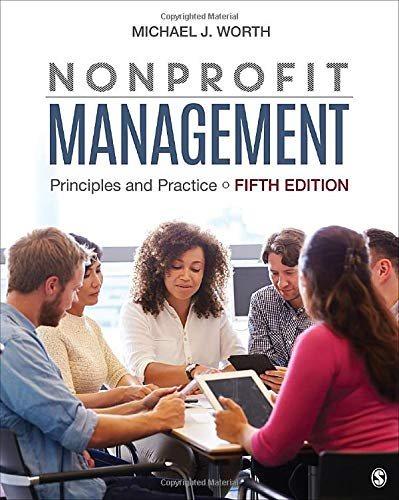Milton Hershey was the founder of the Hershey Chocolate Company, which is now known as Hershey Foods,
Question:
Milton Hershey was the founder of the Hershey Chocolate Company, which is now known as Hershey Foods, the maker of Hershey's Milk Chocolate, Hershey's Kisses, and other products with which all Americans are familiar.
Hershey and his wife, Catherine, did not have children of their own. In 1909, they founded a school to educate poor male orphans, created a charitable trust to support the school, and appointed nine trustees to manage the trust for the school's benefit. In 1918, after his wife's death, Hershey gave his entire personal fortune, consisting mostly of stock in the company, to the Hershey Trust to support the Milton S. Hershey School. The school today enrolls a diverse student body of about 2,000 low-income young men and women on a residential campus in central Pennsylvania. The students do not pay tuition or other fees, since the trust receives revenue from its interest in the food company each year to support the school's operation
(Milton S. Hershey School, 2014).
By 2001, the Hershey Trust had grown to over $5 billion, most of which was stock in Hershey Foods.
Indeed, the charitable trust owned a controlling interest in the company, and company stock was 56 percent of the trust's assets (Gadsden, 2002). With 6,200 employees, the company was the largest employer in its hometown of Hershey, Pennsylvania (Scully, 2009).
However, in 2002, the trustees of the Hershey Trust were concerned by the lack of diversification in the trust's investments and by the increasing competition from other companies. Fearing that the food company's decline could endanger the school's future, they proposed selling the trust's controlling interest.
Wrigley, best known for its chewing gum, was prepared to buy it for $12.5 billion (McCracken & Brat, 2009).
The Hershey, Pennsylvania, community strongly objected to the sale, fearing the loss of jobs and a negative impact on the local economy. Under Pennsylvania law, the state attorney general oversees charitable trusts.
The attorney general at the time, Mike Fisher, sided with the community and petitioned the state court to block the sale, arguing that it “could have profoundly negative consequences” for the Hershey region. The court agreed, and the sale was stopped. The Pennsylvania legislature later passed a law affirming the court's decision (Larkin, 2002). Some argued that the attorney general and the court had overstepped their authority and had dangerously altered the law regarding the fiduciary responsibilities of charitable trustees.
They might now be required to make their decisions not only in light of the interests of the trust's beneficiaries, but also in consideration of local political and economic pressures (Larkin, 2002).
The food company's position continued to decline after 2002. By 2009, Hershey Foods had suffered years of stagnating revenue and a slumping stock price, which reduced the assets of the trust and thus the revenue of the school. In addition, a wave of mergers in the food industry was presenting increased competition from large multinational producers. Meanwhile, Hershey was finding it difficult to grow its business outside of the United States and derived only 10 percent of its revenue from overseas (Wachman, 2009). ....................
Questions
1. Why might the board of Hershey Foods and the trustees of the Milton S. Hershey Trust sometimes hold different views and priorities? To whom and for what are they responsible?
2. Should boards of nonprofits be concerned only with following the intention of donors and serving the interests of those who directly benefit from the nonprofit's assets, or should they also consider the impact of their decisions on local communities?
3. What concerns might the trustees of the Milton S. Hershey Trust have held about their own legal responsibilities throughout the events described in the case? In other words, which laws might potentially have created liability for members of that nonprofit board?
Step by Step Answer:

Nonprofit Management Principles And Practice
ISBN: 9781506396866
5th Edition
Authors: Michael J. Worth





